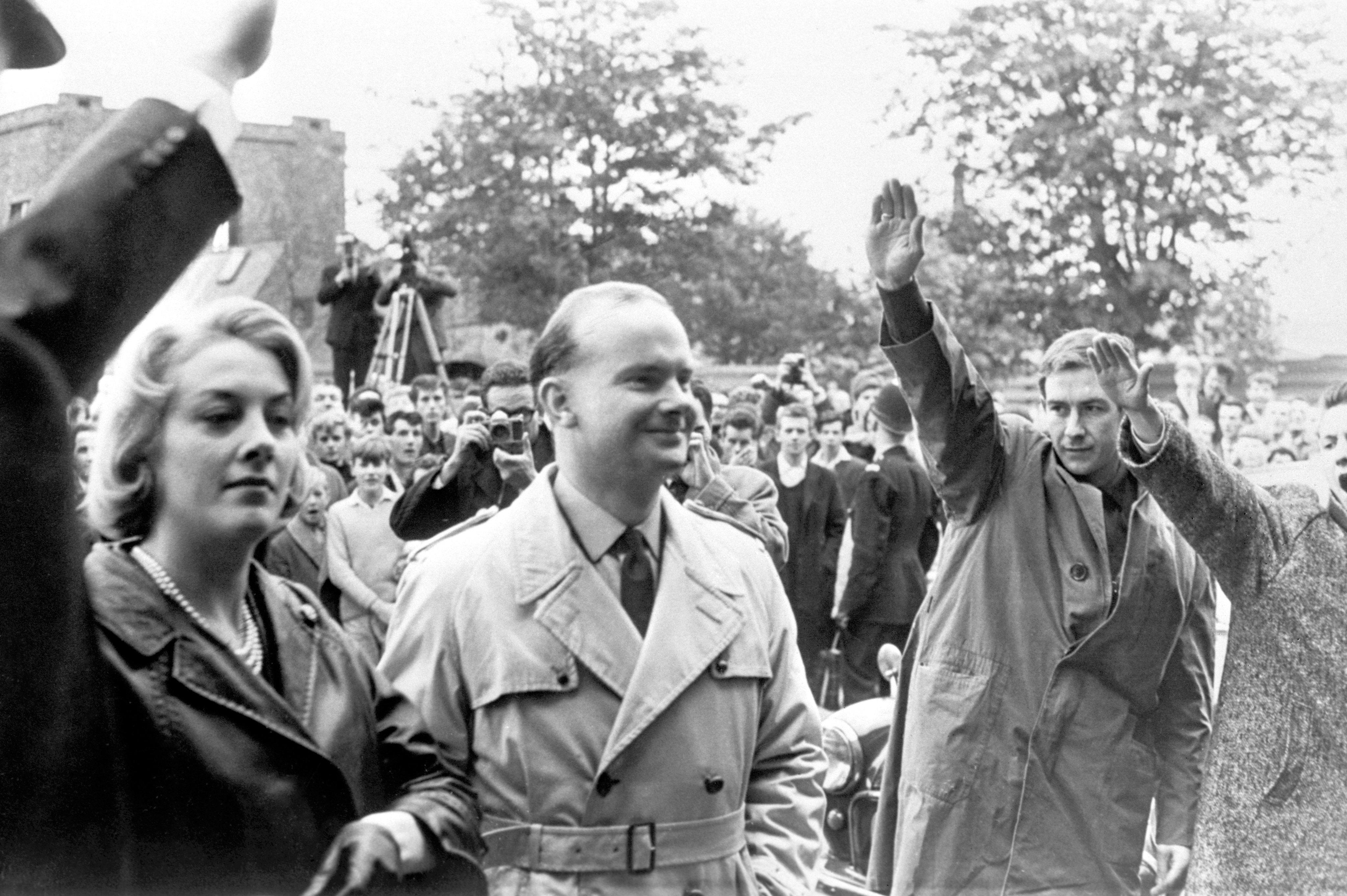
- Select a language for the TTS:
- UK English Female
- UK English Male
- US English Female
- US English Male
- Australian Female
- Australian Male
- Language selected: (auto detect) - EN
Play all audios:
The best thing about _Ridley Road_ (BBC1, Sundays, 9pm) is the cast. There hasn’t been a TV drama with such a strong cast since _The Hollow Crown_. Rory Kinnear plays the fascist leader,
Colin Jordan. Eddie Marsan plays Soly Malinovsky, a passionate crusader against the anti-Semitic Right and Tracy-Ann Oberman plays his wife, Nancy. Samantha Spiro plays Liza Epstein, the
mother of the central character, Vivien, and Will Keen plays her husband, David. Allan Corduner plays an East End rabbi and Rita Tushingham plays Vivien’s landlady. Many have rightly praised
the important subject of the series: antisemitism on the far Right in the 1960s. Younger viewers won’t remember the crank Right of the post-war years, their violent hatred for Black and
Jewish people alike. The Sixties weren’t just about Twiggy and the Beatles. There was a nasty side to British society, from the anti-Jewish riots just after the war and the Notting Hill
Riots in the 1950s to the racism depicted in _Ridley Road_ and in Steve McQueen’s recent BBC Small Axe dramas. These have taught us valuable lessons in the recent history of racism in
Britain. Executive producer Nicola Shulman and writer Sarah Solemani have received critical acclaim for adapting Jo Bloom’s novel to the small screen. But there are problems, too, and these
are likely to be overlooked in the praise for the acting and the subject. First, if you compare the first episodes of _Ridley Road_ with _Our Friends in the North_ (1996), it was Peter
Flannery and directors Stuart Urban and Pedr James who did a better job of evoking the feel of the early Sixties, the demolition of old terraced streets, the contemporary soundtrack and the
fascination of the young characters with the huge social changes going on in America. Second, Jo Bloom’s novel is basically chick-lit and the series follows suit. It is about the story of a
young Jewish woman from Manchester, Vivien Epstein, torn between two attractive young men on the Left, both more attractive and interesting than her feeble Jewish fiancé. There’s something a
little troubling about the depiction of the lower middle class Epsteins, desperate for respectability, the mother obsessively cleaning, putting a good marriage before their daughter’s
happiness. They can’t compete with Swinging London and seem indifferent to the rise of the Far Right. And yet the mother’s speech about how she wished she had known more about what was
happening in Nazi Germany is deeply moving, superbly delivered by Samantha Spiro, suggesting there might yet be more to the Epsteins than these stereotypes suggest. This emphasis on romance
suits the current BBC to a tee. Like the execrable _Vigil_, BBC1 drama is getting in the habit of using important political issues as window-dressing, when their real heart is in romantic
relationships. This mix of politics and romance is clearly seen by the BBC as a winner, especially for that prime 9pm Sunday slot. In both series, the politics is a problem. Was there
far-Right racism and anti-Semitism in 1960s Britain? Yes. How significant was it? Not very. While leader of the British Movement, Colin Jordan stood for Parliament three times: in the 1969
Birmingham Ladywood by-election (282 votes, 3.0%); Birmingham Aston in the 1970 general election (704 votes, 2.5%) and Wolverhampton North East in the February 1974 general election (711
votes, 1.5%). The glimpses of small meetings in nearly empty church halls in _Ridley Road_ confirms this was a tiny faction of the crank Right. The real problem in British society was the
widespread racism in the 1960s and ’70s: Enoch Powell, of course, but also the nasty everyday racism of countless social encounters. Black and Asian Britons encountered vile abuse and
physical attacks and this was deeply embedded in British society during these years. This leads us to the present. The far-Right British Movement suits the BBC perfectly. Anti-Semitism, for
the BBC, is a problem of small Right-wing organisations. But, of course, today we know that this is small fry compared to what has been going on on the Left, in our universities, in the
trade unions and right at the top of the Labour Party. While he was leader of the Labour Party, Jeremy Corbyn associated with Holocaust deniers and anti-Zionist hatemongers. The Labour party
could have tackled anti-Semitism more effectively “if the leadership had chosen to do so”, the Equality and Human Rights Commission (EHRC) concluded as part of its 130-page investigation.
“We found specific examples of harassment, discrimination and political interference in our evidence,” the EHRC said in its foreword, adding: “But equally of concern was a lack of leadership
within the Labour party on these issues, which is hard to reconcile with its stated commitment to a zero-tolerance approach to anti-Semitism.” Some got very touchy-feely about the moment in
Keir Starmer’s speech at the Labour conference last week when he said “Welcome home”, to Louise Ellman, who had been driven out of the Labour party by Corbynites. His words received a
standing ovation, but this was from largely the same Labour delegates who had given Corbyn standing ovations at Labour’s conference just two years ago. Starmer is keen to close the door on
anti-Semitism in the Labour Party, but there is clearly much more work to do. Compared to this, and the power of Powell, Colin Jordan’s small bunch of thugs counted for little. Will we ever
see a BBC drama series about anti-Semitism on the Left? I am not holding my breath. We need more primetime dramas about racism towards Jewish, Asian and Black people in post-war Britain, as
it permeated British culture, politics and society; less chick-lit romance, fewer clichés about the Swinging Sixties and a tougher look at racism on the Right _and_ the Left, from the Young
Liberals in the 1960s and ’70s to Corbynism and the trade unions today. I hope these dramas will have the same brilliant cast and production values as _Ridley Road_. A MESSAGE FROM
THEARTICLE _We are the only publication that’s committed to covering every angle. We have an important contribution to make, one that’s needed now more than ever, and we need your help to
continue publishing throughout the pandemic. So please, make a donation._









